Are you a freelance travel enthusiast looking for a clear policy to guide your adventures? Crafting a travel policy can help streamline your processes and ensure every journey aligns with your professional objectives. From budgeting tips to preferred accommodations, having a solid framework can make your travels more enjoyable and productive. Dive into this article to discover essential elements for creating an effective freelance travel policy tailored just for you!
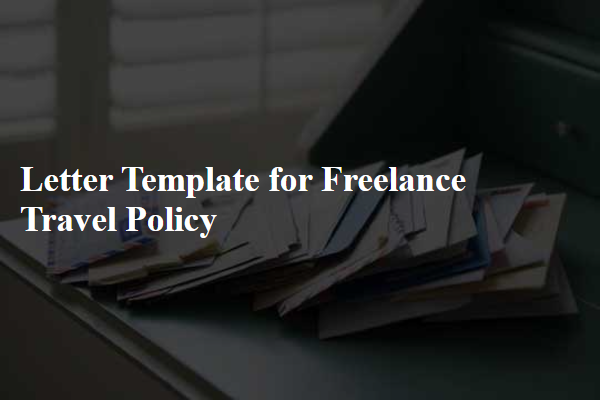
Purpose and Scope
The freelance travel policy outlines guidelines for independent contractors and freelancers engaged in travel-related assignments or projects. The primary purpose involves ensuring efficient and cost-effective execution of travel plans while maintaining compliance with budgetary constraints. This policy applies to all freelancers operating within the scope of travel opportunities offered by the organization, regardless of geographical location or project duration. Key considerations include pre-approval for travel expenses, reimbursement procedures, and adherence to specified booking channels and travel guidelines. By establishing clear protocols, the organization aims to streamline the travel process while supporting freelancers in their assignments.
Travel Arrangements and Booking
Freelance travel policies should clearly outline travel arrangements and booking processes for efficient planning. Clients should communicate preferred travel dates, destinations, and budget constraints. Bookings can encompass flights (airlines such as Delta or American Airlines), accommodations (hotels like Marriott or Hilton), and transportation (car rentals from companies like Hertz or Enterprise). Advance reservations (typically 14 days before travel) are encouraged to secure lower rates. Travelers should save receipts for reimbursement, adhering to guidelines (maximum daily allowances, specific expense categories). In addition, approval protocols for expense deviations should be established to prevent misunderstandings. Communication through email or project management tools is recommended for seamless coordination.
Expense Reimbursement
Freelance travel policies often outline the guidelines for expense reimbursement, crucial for maintaining financial clarity. Expenses eligible for reimbursement typically include transportation costs (such as airline tickets, train fares, and taxi rides), accommodation fees (hotel stays, Airbnb rentals), and meal expenses during business-related trips. Receipts must be submitted within a stipulated timeframe, often 30 days post-travel. Freelancers should maintain detailed records of all expenditures, including dates and purposes of travel. The reimbursement process is usually triggered by submitting a completed expense report to the designated contact (often the finance department), ensuring compliance with company policies. Understanding specific caps on daily allowances for meals and accommodations--like $50 for meals and $200 for hotels in urban areas--can help freelancers budget effectively for their travel tasks.
Safety and Security Guidelines
Freelance travel policies emphasize crucial safety and security guidelines for remote workers engaged in various projects worldwide. These guidelines include precautions for personal safety while traveling to high-risk areas, such as regions with recent conflicts or natural disasters, like Syria or Haiti. Recommended practices involve keeping emergency contact numbers accessible, ensuring travel insurance coverage that includes medical evacuation, and adhering to local laws and customs in countries such as Indonesia or Brazil. Furthermore, freelancers should adopt digital security measures, utilizing VPNs and secure communication platforms to protect sensitive information while accessing public Wi-Fi in airports or cafes. Regularly checking travel advisories issued by governmental bodies, such as the U.S. State Department or the UK Foreign Office, ensures awareness of potential risks before embarking on journeys.
Contact and Support Information
Travel policies outline essential procedures for freelancers. Key elements include contact information for support, especially during emergencies. A dedicated support team (often available 24/7) can quickly address issues, such as travel disruptions or accommodation changes, which may arise during business trips. Additionally, including an email address and phone number allows for efficient communication. Resources like FAQs on company websites enhance clarity on reimbursement processes, allowed expenses, and preferred vendors, including airlines and hotels. Clear guidelines ensure freelancers navigate travel efficiently while adhering to company standards.

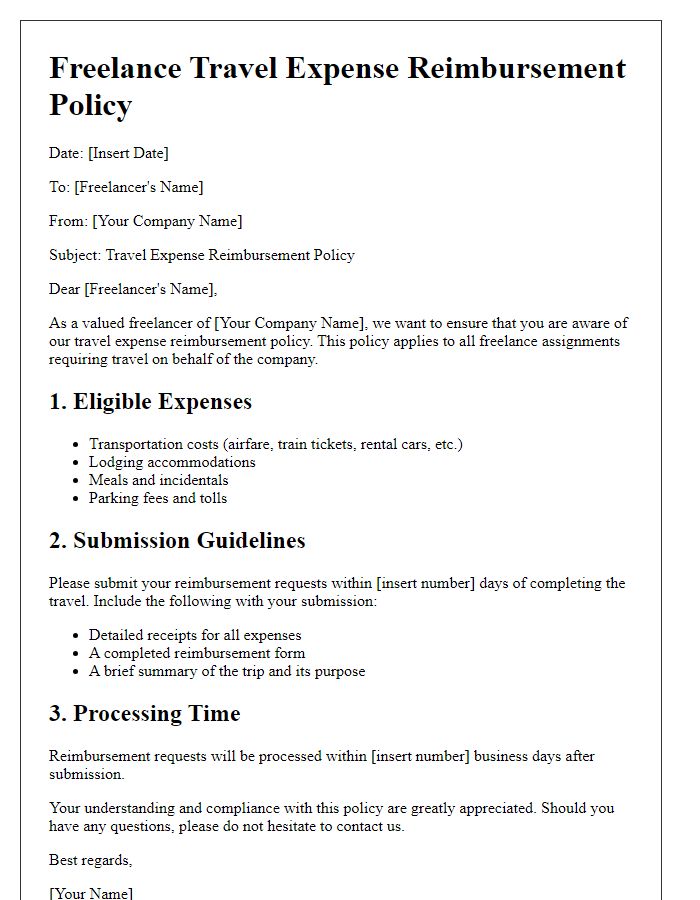
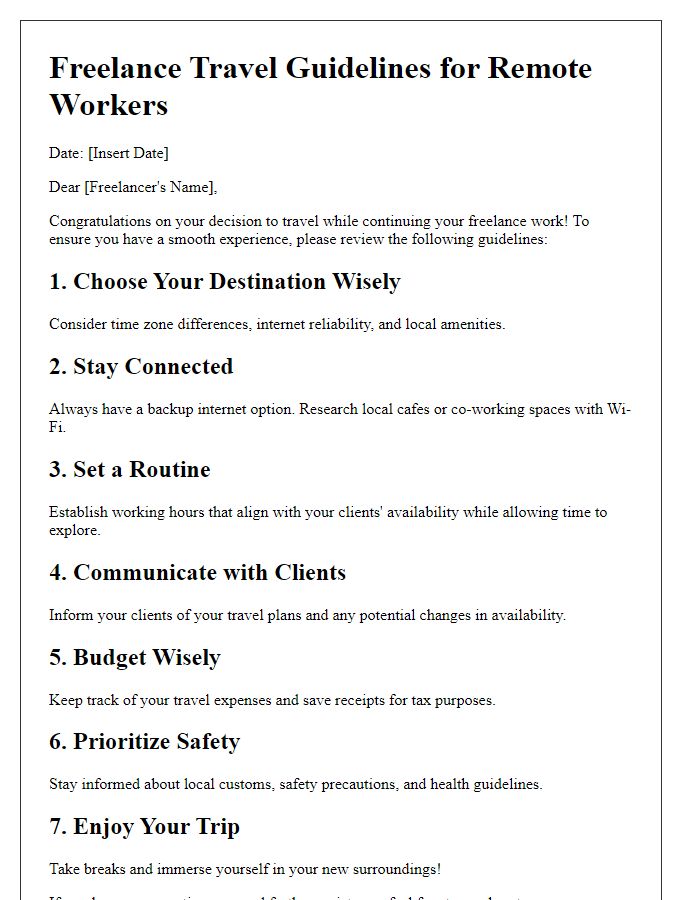
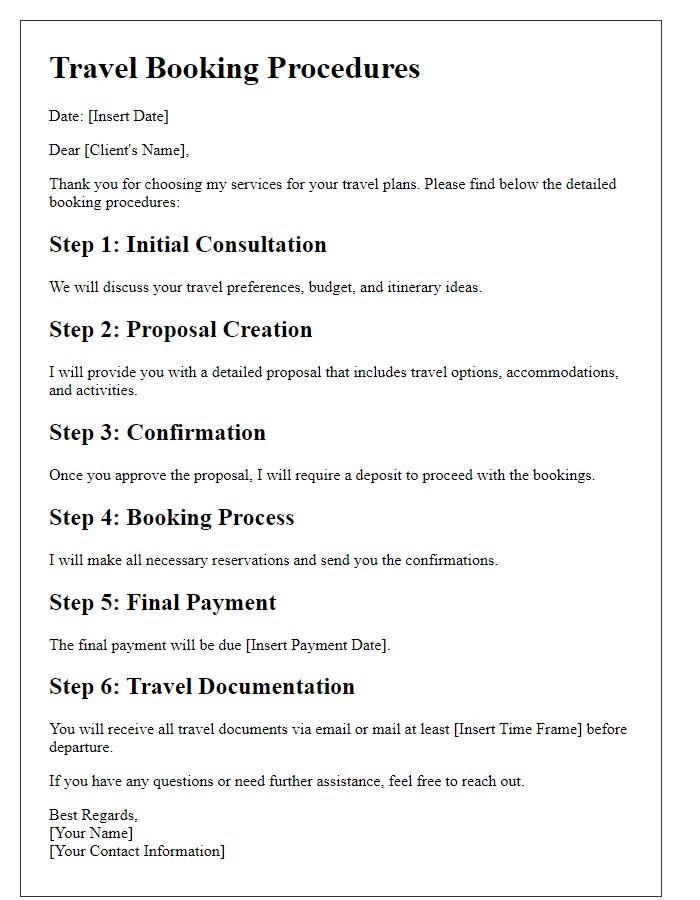
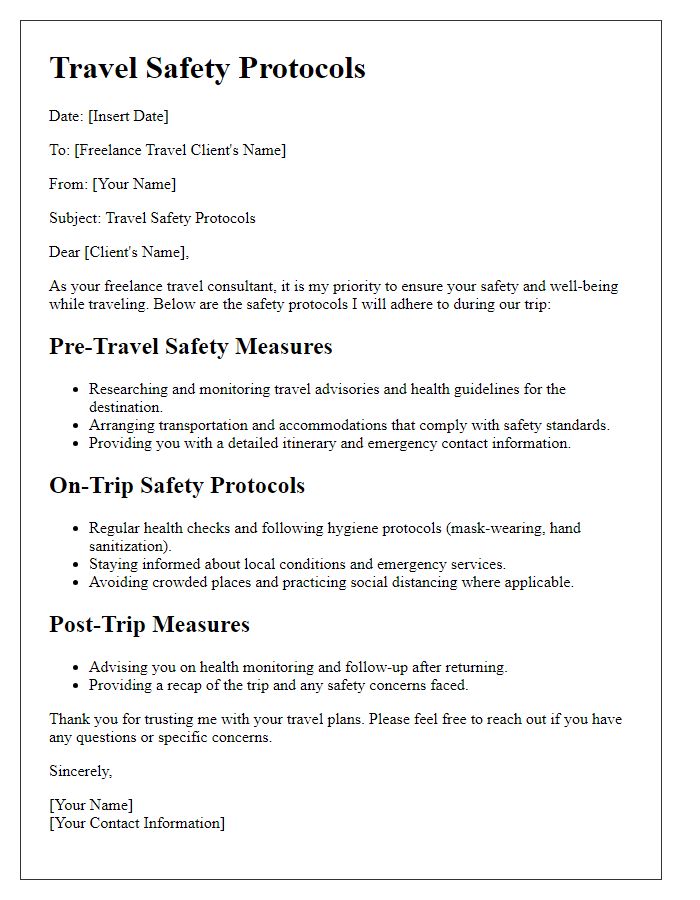
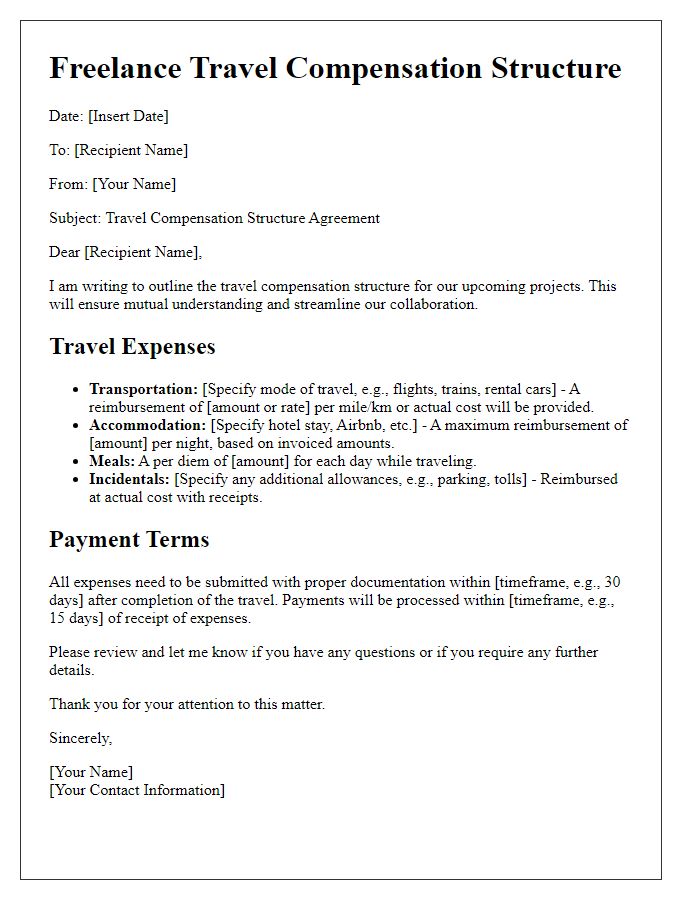
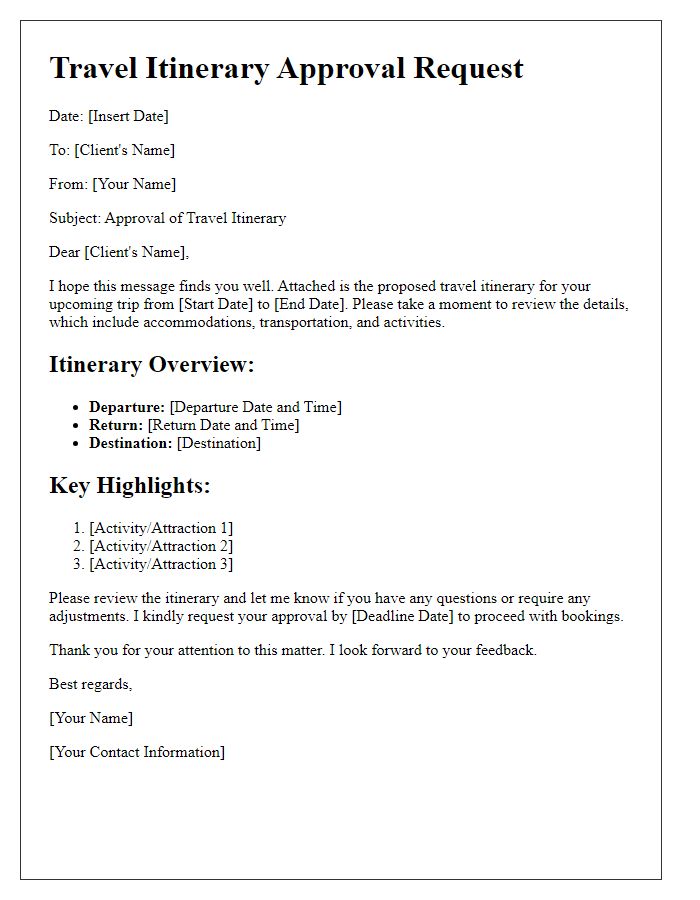
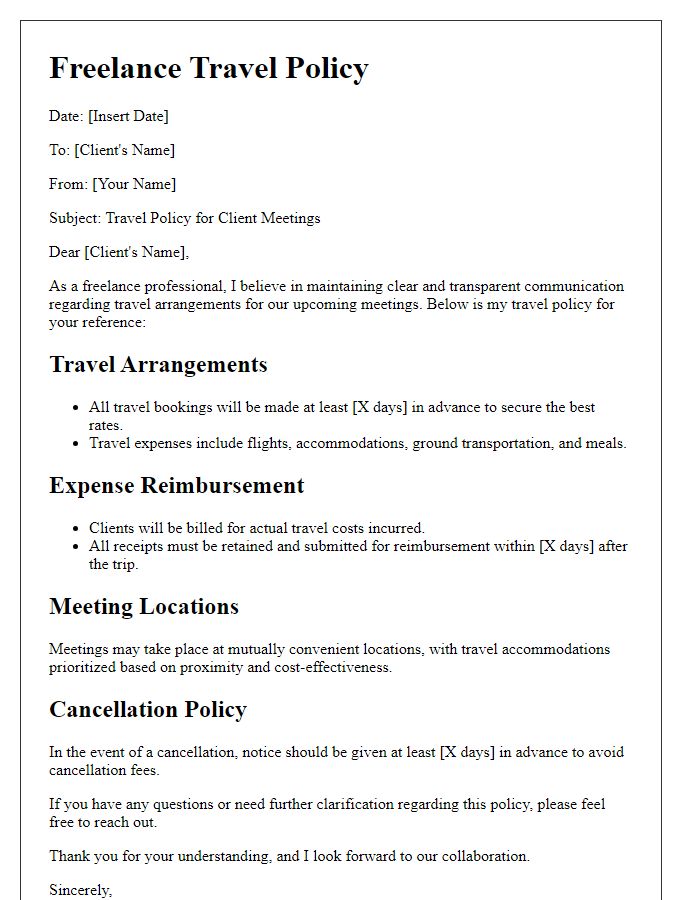
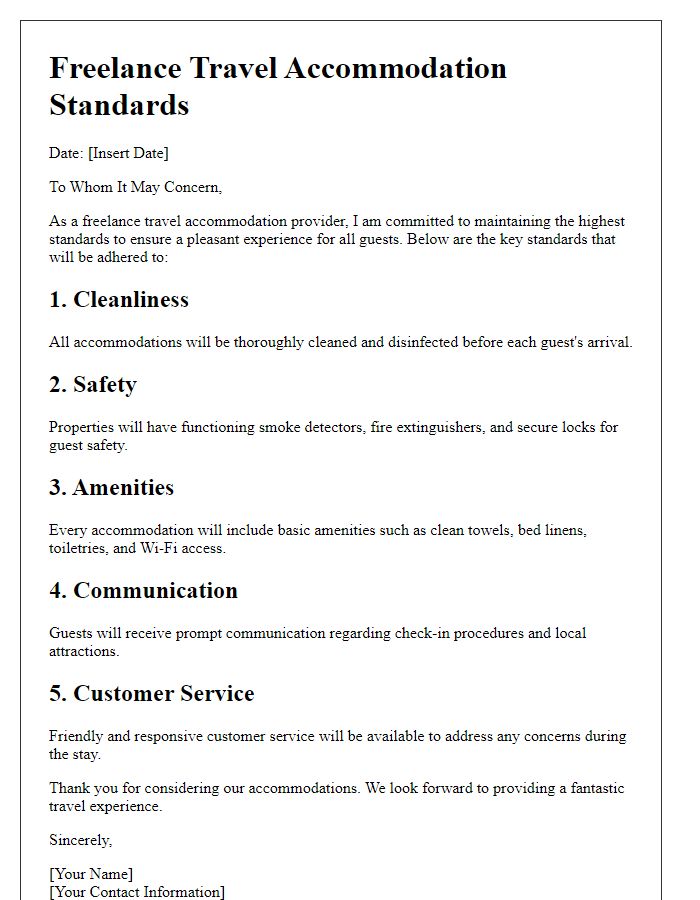
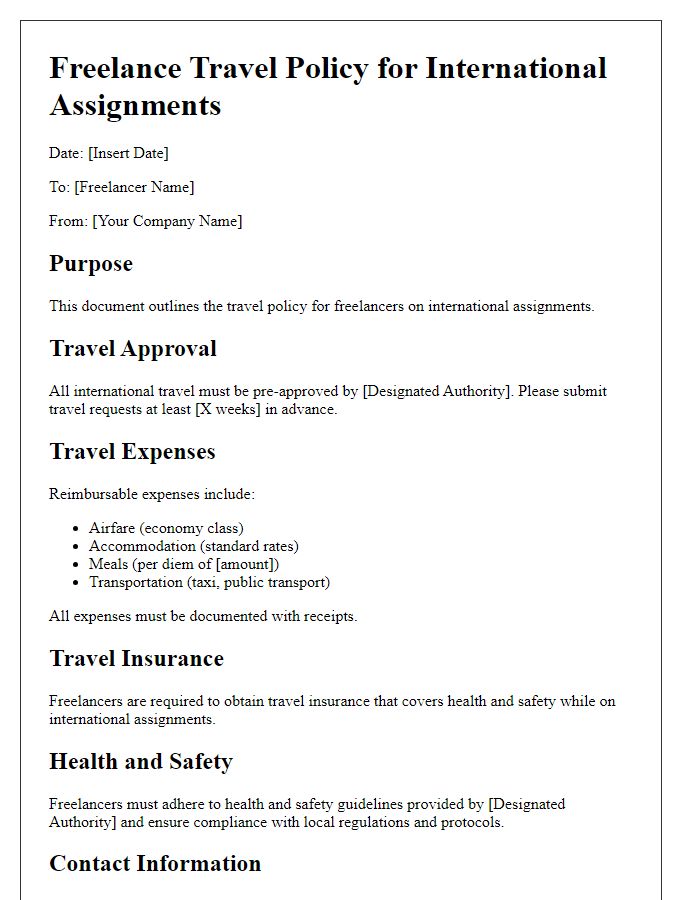


Comments